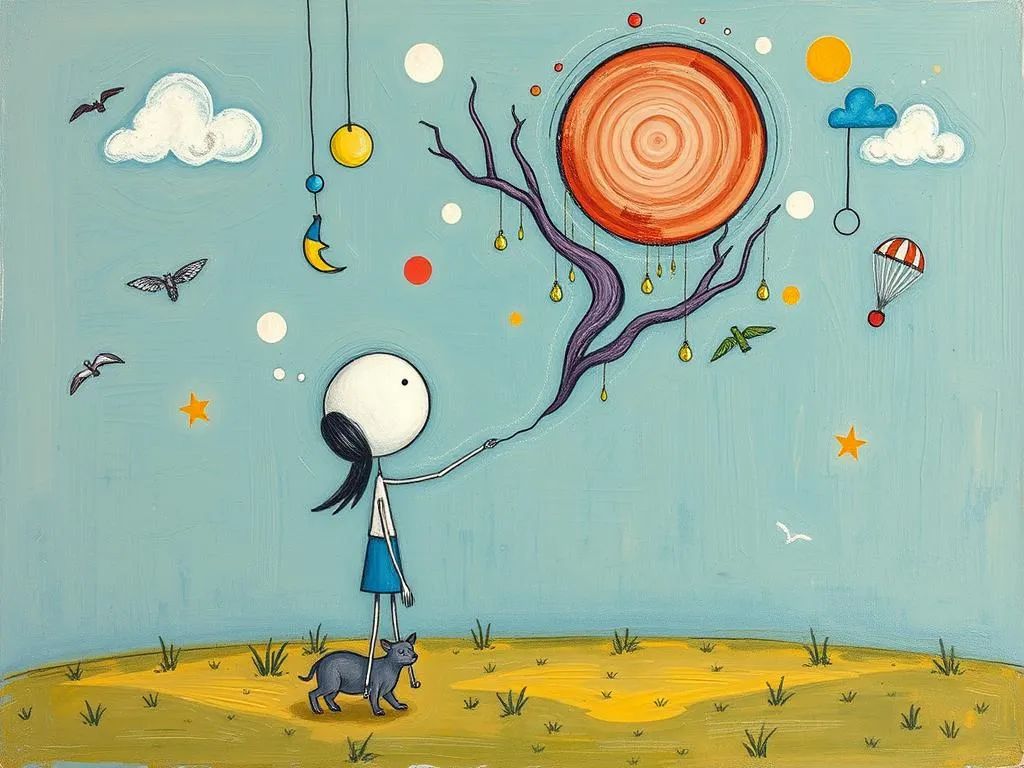
Introduction
Dreams have long fascinated humanity, serving as a gateway into our subconscious minds. Among the myriad themes that appear in our nocturnal narratives, guilt stands out as a profoundly significant symbol. It often manifests in various forms, prompting individuals to confront feelings they might not fully acknowledge in their waking life. Understanding the symbolism of guilt in dreams can provide valuable insights into our emotional state, relationships, and personal growth. This exploration into guilt as a dream symbol is not only relevant but also intriguing, as it encourages us to delve into our inner thoughts and feelings.
Symbolism and Meaning
Guilt in dreams can symbolize a variety of emotions and situations, often reflecting unresolved conflicts or unexpressed feelings in our waking lives. At its core, guilt signifies a sense of wrongdoing, whether perceived or actual. It may arise from a specific action, a failure to act, or even the fear of judgment from others. In this context, guilt serves as a catalyst for self-examination, prompting us to question our choices and values.
When we dream of guilt, common symbols may include being chased, hiding, or experiencing a sense of loss. For instance, if one dreams of being chased, it may represent the relentless pursuit of their guilt, suggesting that they are trying to escape from their feelings rather than confront them. On the other hand, hiding in a dream might indicate a desire to conceal one’s guilt from others, reflecting an internal struggle with accountability.
Another perspective on guilt in dreams is its relationship with regret. Dreams featuring guilt can often highlight past decisions and the impact they have on our present. This connection to regret can point to an urgent need for reconciliation, either with ourselves or with others. The emotional weight of guilt can manifest as a burden, suggesting that unresolved issues are affecting our peace of mind.
In some cases, guilt can also symbolize a desire for redemption. Dreaming of making amends or seeking forgiveness often indicates a longing to heal emotional wounds. This interpretation highlights the potential for growth and transformation, as the act of confronting guilt can lead to a deeper understanding of oneself.
Key Scenarios and Variations
The interpretation of dreams involving guilt can vary significantly based on the specific scenarios involved. For instance, dreaming of being accused of a crime you didn’t commit may reveal feelings of injustice or misunderstanding in your waking life. This scenario can indicate that you feel misrepresented or wrongly judged by others, and the dream serves as a reflection of your desire to clear your name or express your truth.
Alternatively, if you dream of confessing a wrongdoing, it often indicates a yearning for release from the burden of guilt. This scenario suggests that you are ready to confront your actions and take responsibility for them. Such dreams can be empowering, as they represent a willingness to face uncomfortable truths and seek a path toward self-forgiveness.
Another variation might involve dreaming about someone else’s guilt. In this case, the dream could reflect your feelings towards that person. Perhaps you believe they’ve wronged you or someone close to you, and the dream serves as a means of processing those emotions. Alternatively, it may highlight your concern for their emotional well-being, indicating that you want to help them deal with their feelings of guilt.
Dreams of guilt can also involve more abstract scenarios, such as being lost in a maze or wandering in a fog. These situations may symbolize feelings of confusion and uncertainty regarding your moral compass or personal choices. Such dreams may indicate that you are grappling with complex emotions and are unsure about how to navigate your path forward.
Finally, consider dreams that feature reconciliation or forgiveness. These scenarios often symbolize hope and the possibility of healing, suggesting that you are ready to move beyond feelings of guilt. This dream could represent a significant shift in perspective, indicating a readiness to let go of past mistakes and embrace a more compassionate view of yourself and others.
Real-Life Connections and Takeaways
Connecting dreams of guilt to real-life situations can be a powerful exercise in self-reflection. It invites you to consider the emotions and experiences that may be influencing your subconscious. Start by asking yourself: What specific events or interactions in my life resonate with this feeling of guilt? By exploring these connections, you may uncover hidden emotions or unresolved issues that require your attention.
One practical approach is to maintain a dream journal where you can record your dreams, particularly those involving guilt. This practice can help you track recurring themes and symbols, providing deeper insights into your emotional landscape. Over time, you may notice patterns that reveal the sources of your guilt and how they manifest in your daily life.
As you reflect on your dreams, consider the concept of self-compassion. Guilt often stems from a harsh self-judgment, where we hold ourselves to unrealistic standards. Remind yourself that everyone makes mistakes and that growth often arises from our missteps. By practicing self-forgiveness and compassion, you can alleviate the burden of guilt and pave the way for healing.
Engaging in conversations with trusted friends or family members can also be beneficial. Sharing your dreams and feelings of guilt with someone you trust can provide perspective and validation. Sometimes, simply vocalizing your thoughts can help you process emotions that you may have been avoiding.
Additionally, consider exploring avenues for resolution in your waking life. If your guilt stems from a specific action or decision, think about what steps you can take to make amends or rectify the situation. This proactive approach can empower you to transform feelings of guilt into opportunities for growth and reconciliation.
Finally, it’s essential to recognize that guilt can serve as a valuable teacher. Rather than shying away from these feelings, allow them to guide you toward greater self-awareness. Through this lens, guilt can emerge not only as a negative emotion but also as a profound catalyst for personal development and understanding.
In conclusion, dreams involving guilt are rich with symbolism and meaning, inviting us to explore our emotional landscape deeply. By examining the scenarios that unfold in our dreams, we can uncover insights that resonate with our waking lives. Embracing these reflections can lead to transformative experiences, allowing us to navigate our feelings with greater clarity and compassion. As you ponder your dreams of guilt, remember that they are not merely fleeting images but profound invitations to engage with your inner self.







